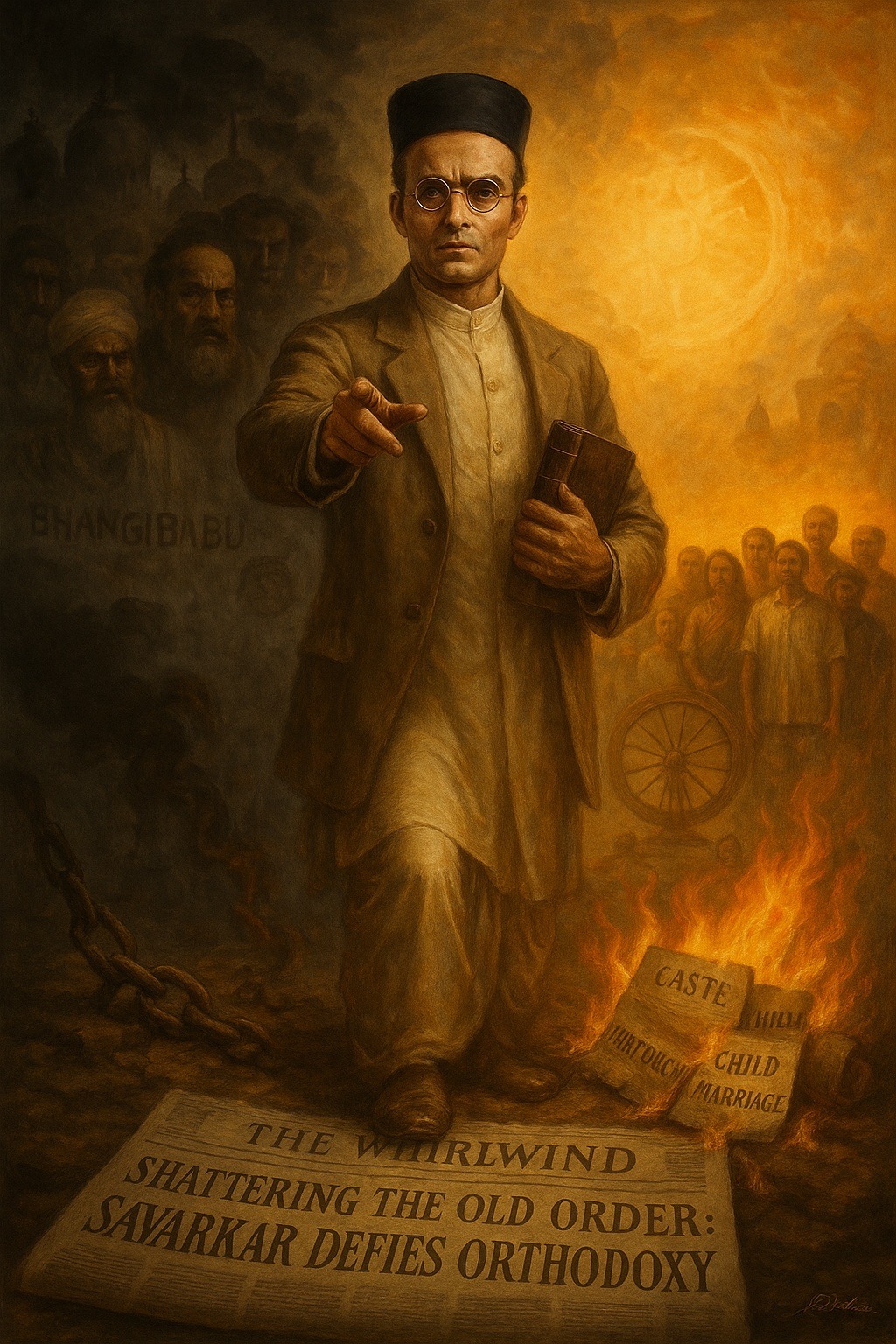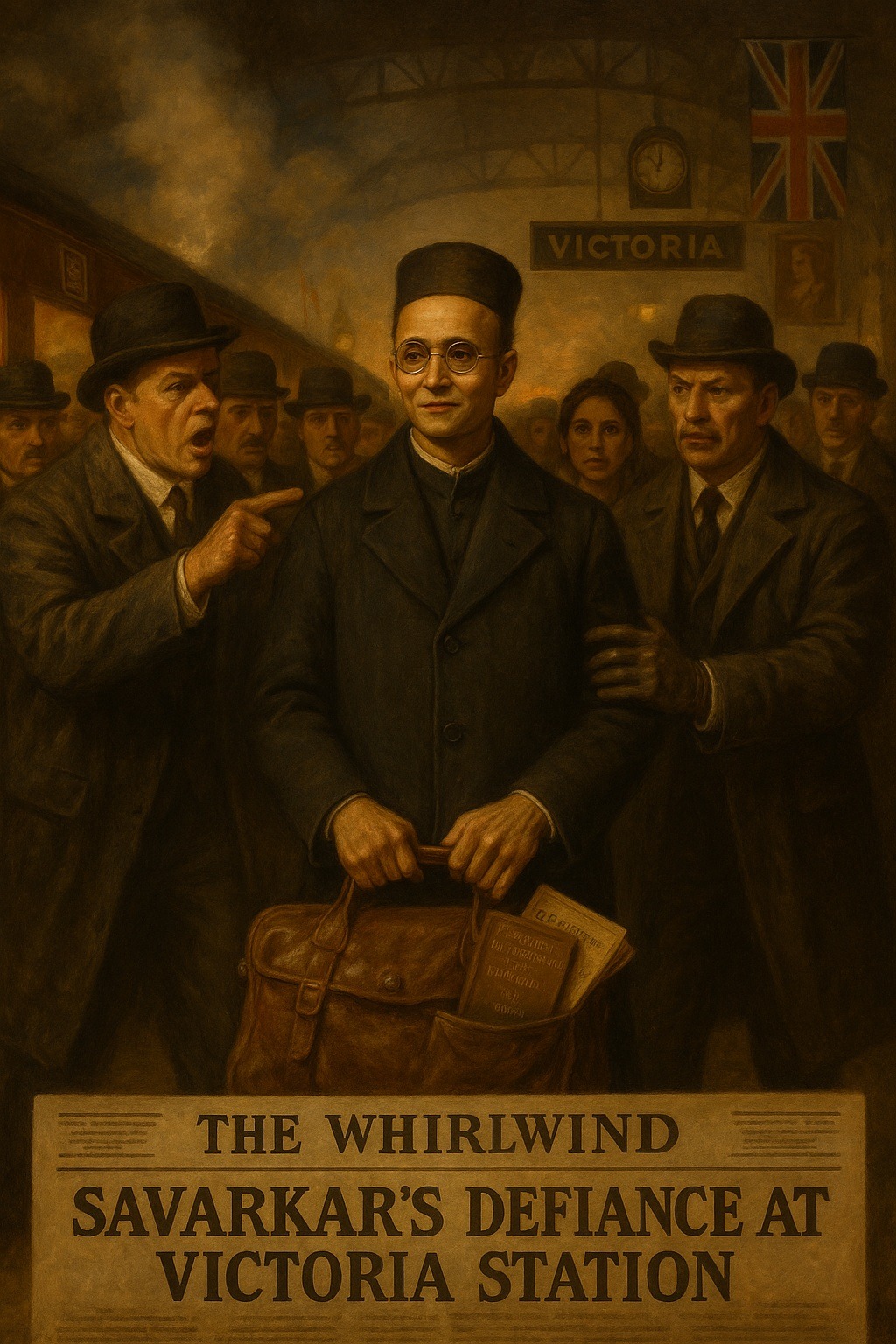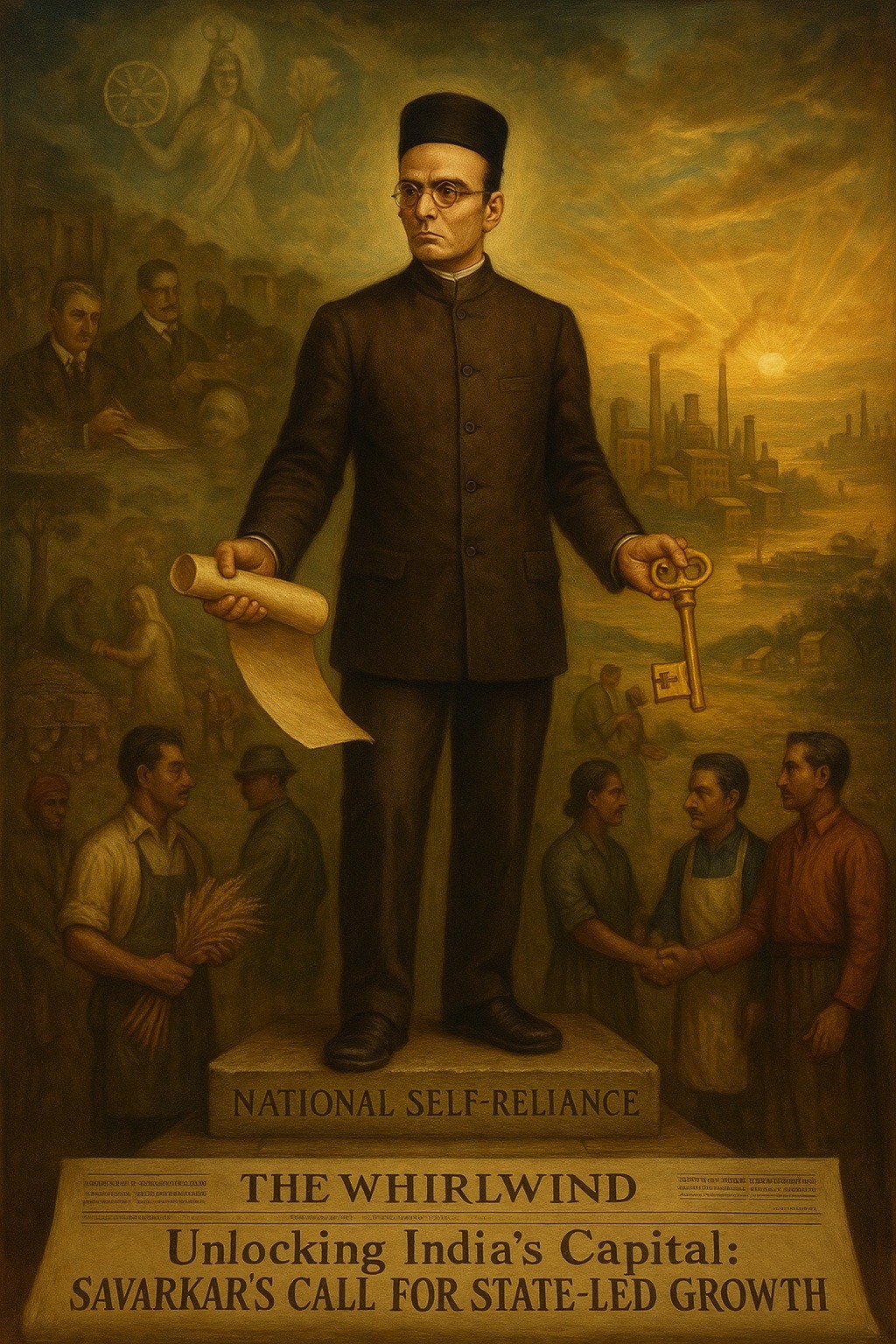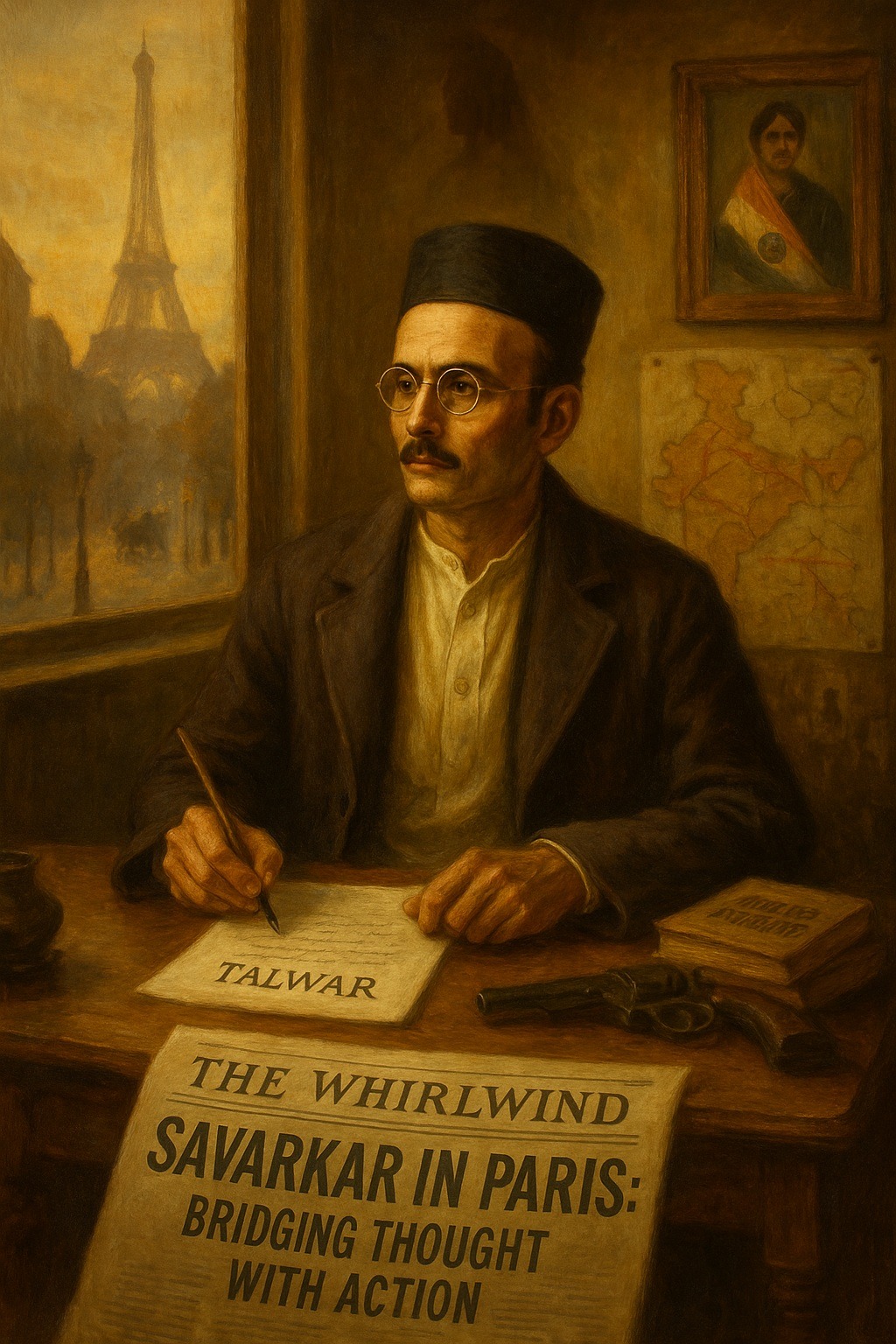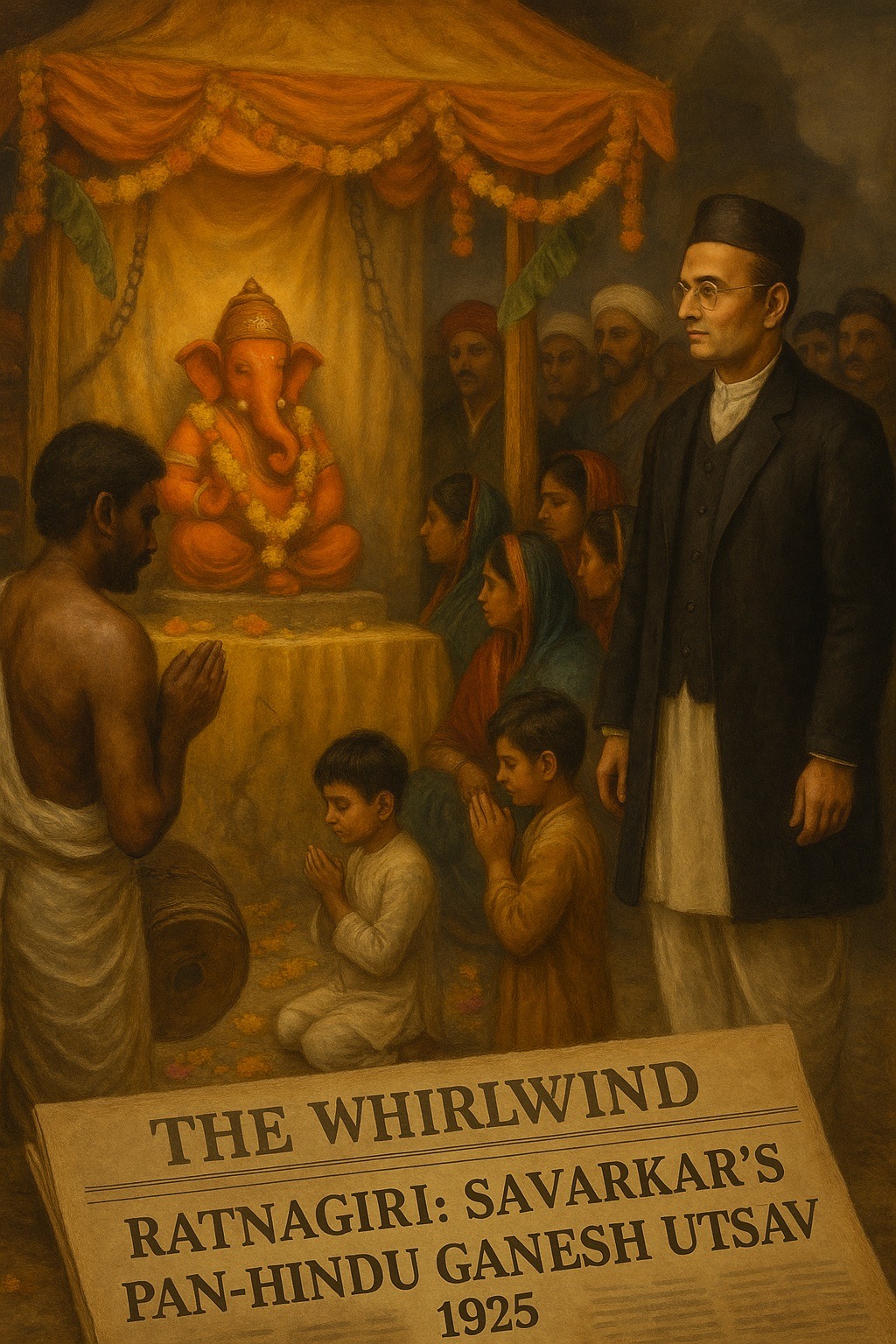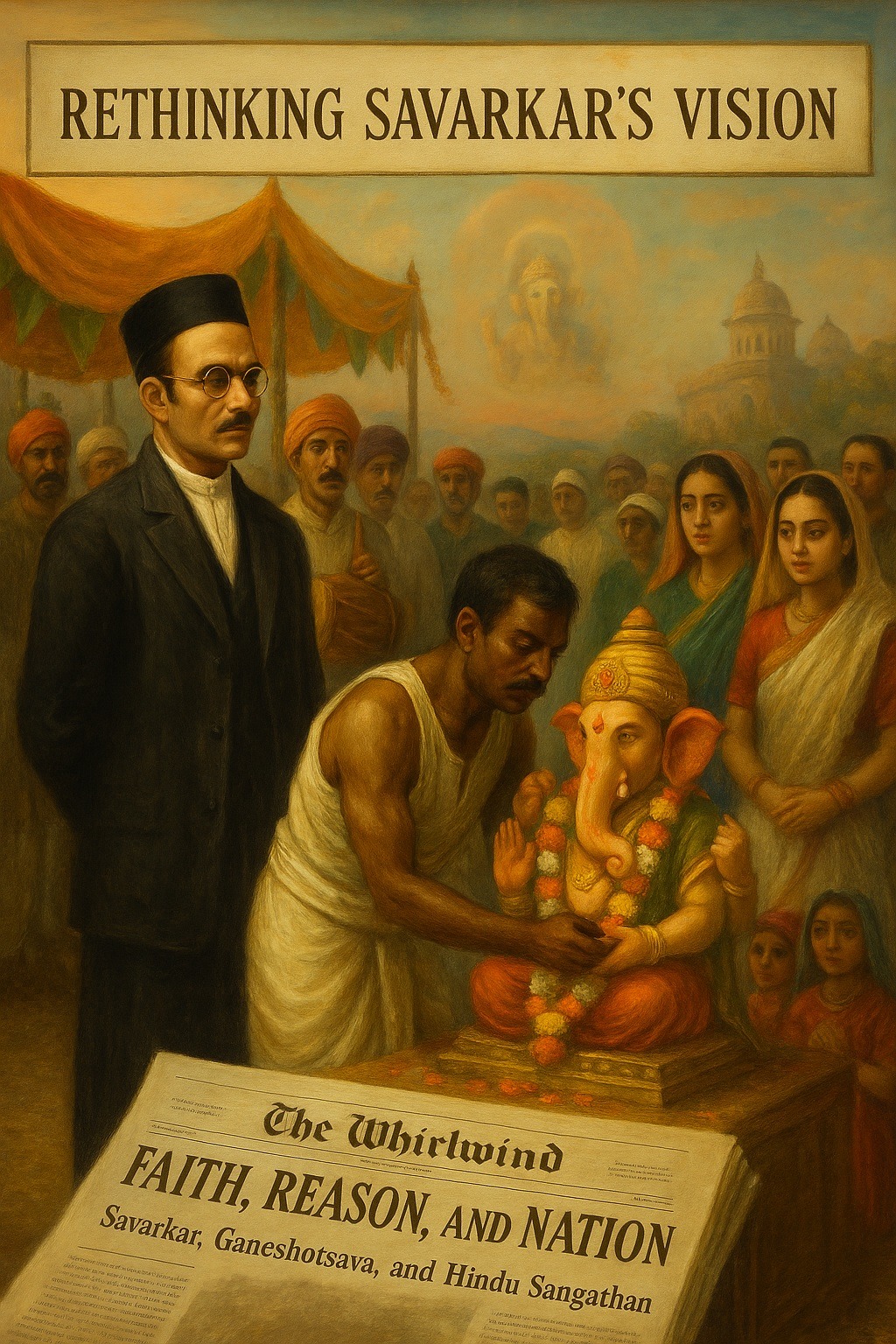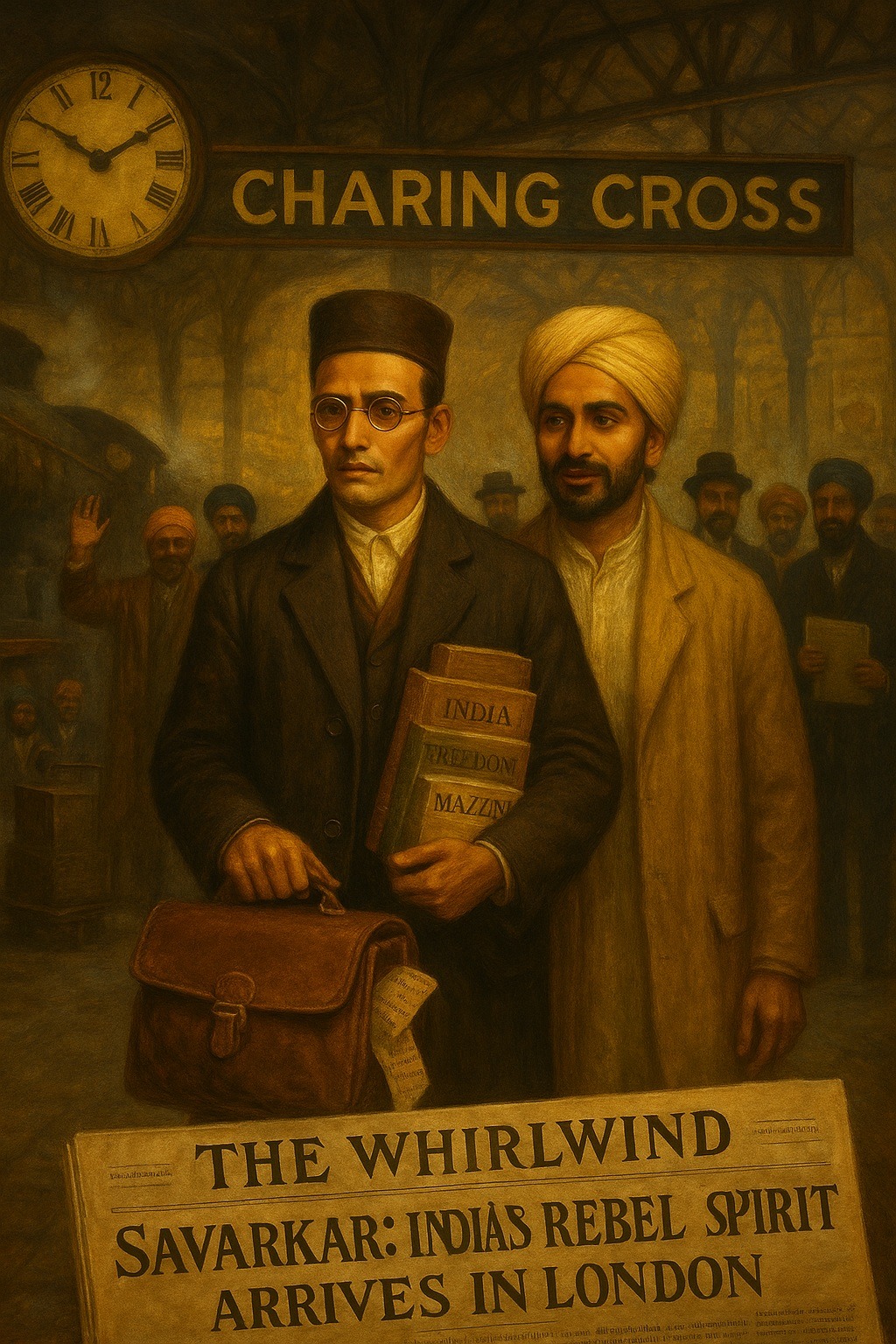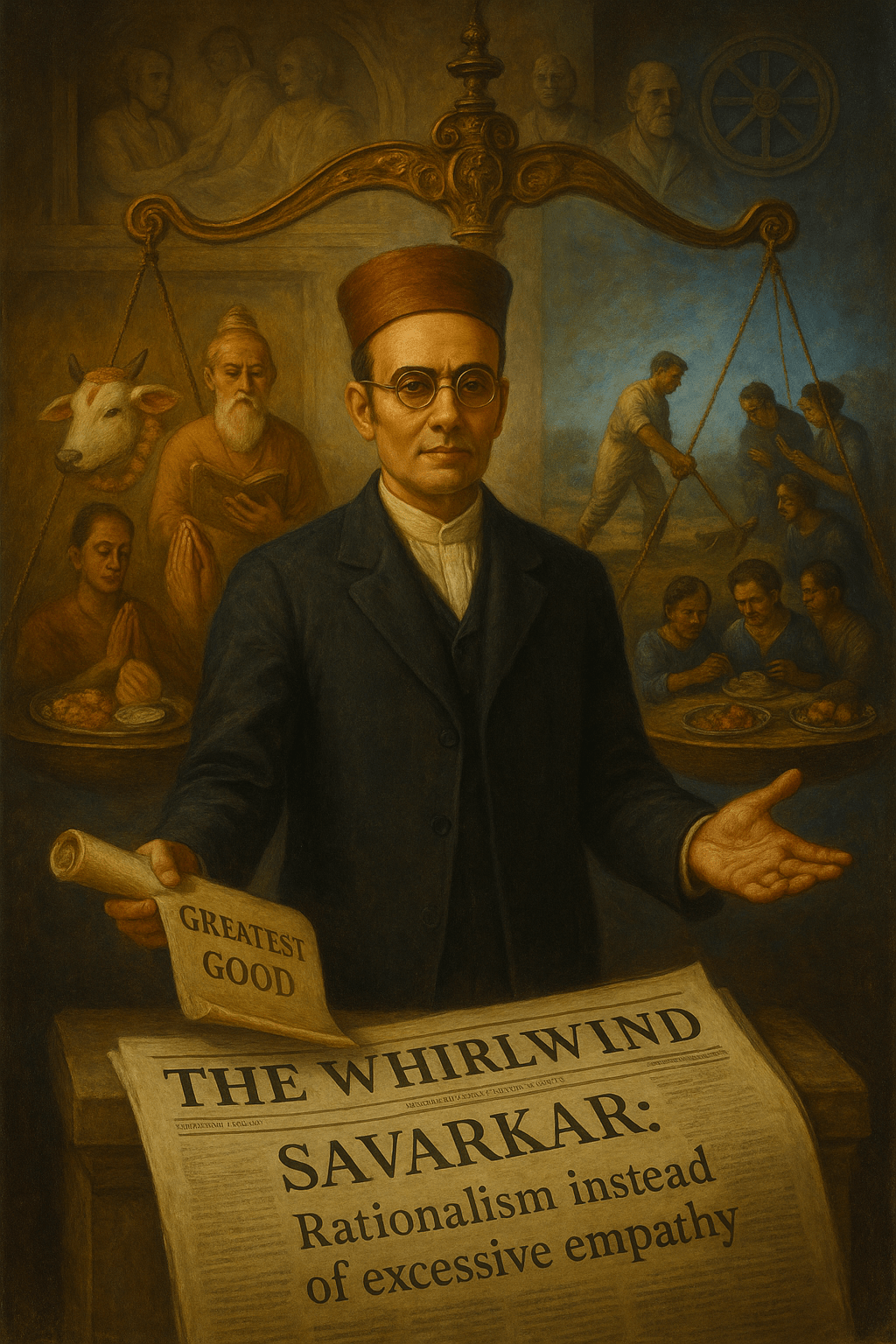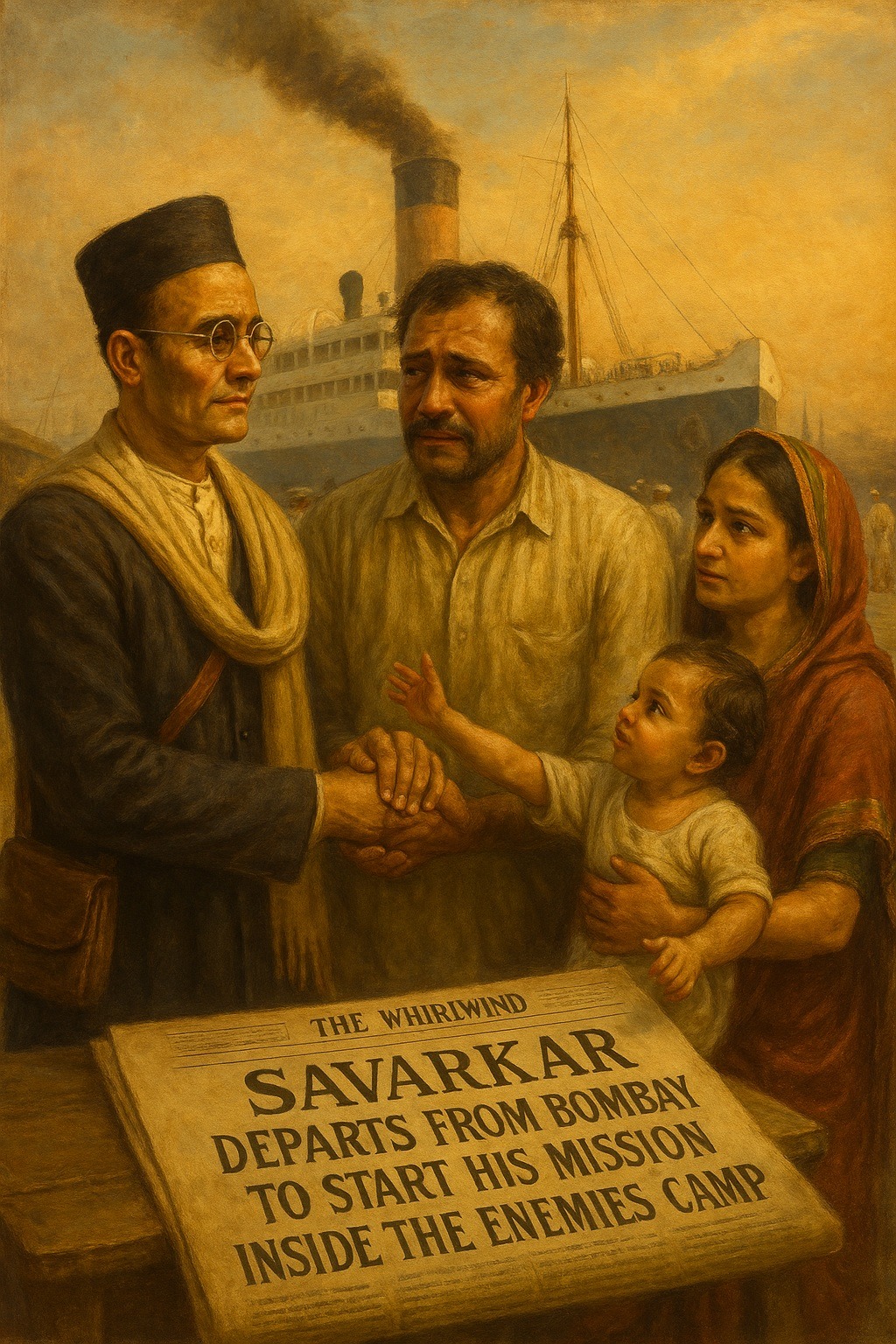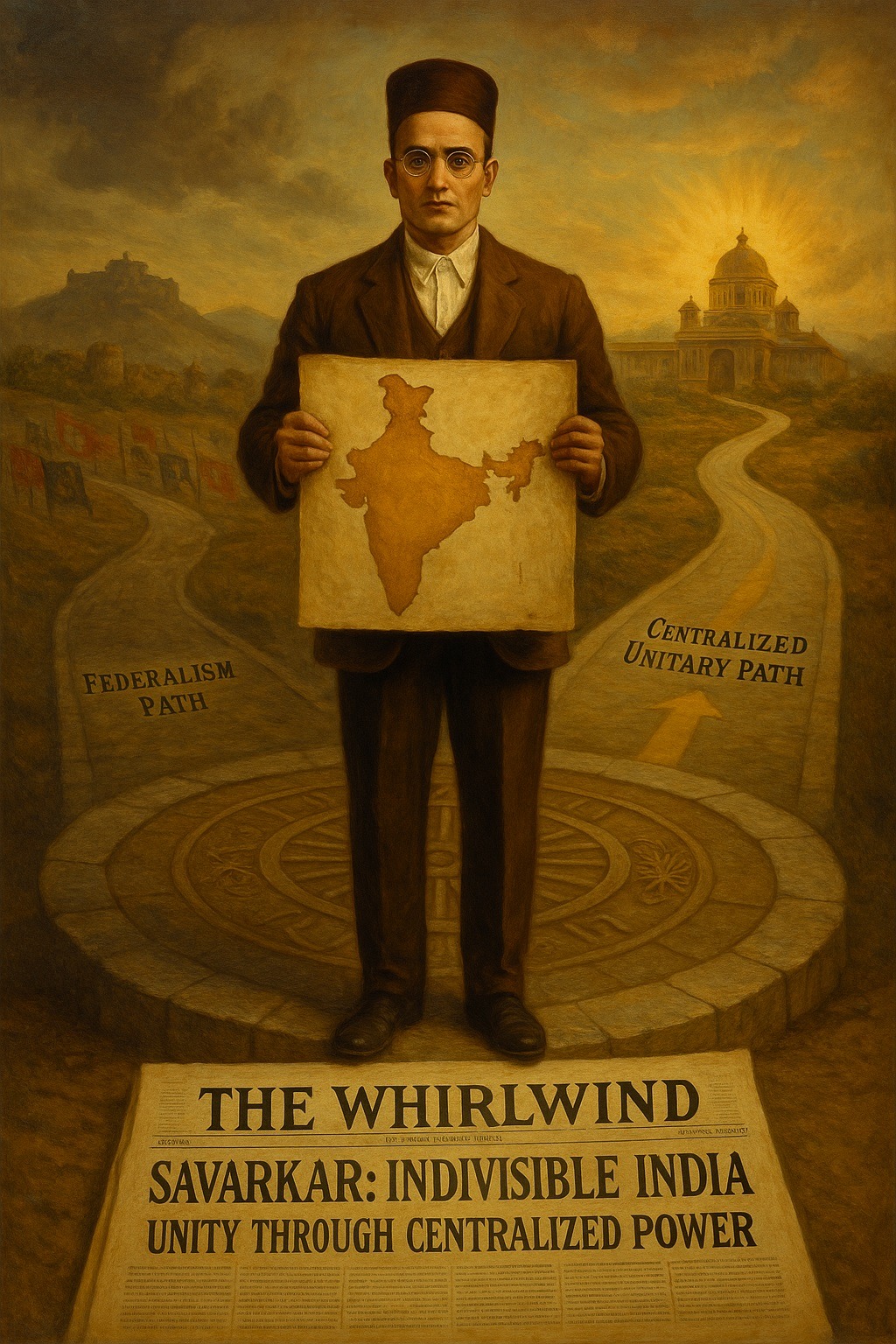All Blogs
Discover
The Whirlwind’s Archive
This section contains the complete archive of The Whirlwind is a blog dedicated to the life, thought, and influence of Vinayak Damodar Savarkar. Each entry explores aspects of his political action, philosophical thinking, social reform efforts, historical interpretations, and cultural legacy. The blog aims to offer critical insights into Savarkar’s role in shaping modern Indian political and ideological discourse.

-
Savarkar’s Arrest in London
Read more: Savarkar’s Arrest in LondonOn Sunday, 13 March 1910, Vinayak Damodar (Veer) Savarkar’s revolutionary mission in Europe met a dramatic turning point. That evening, as he arrived by train from Newhaven (via Paris) at Victoria Station in London, he was arrested by officers of the Metropolitan Police under charges of sedition, conspiracy, and waging war against the British Crown.…
-
Savarkar on State-Led Capital Growth
Read more: Savarkar on State-Led Capital GrowthEconomic Dimension of Hindutva, Part 8; Savarkar’s Economic Principles (4/13) The economic trajectory of a nation is often shaped by its government’s role in capital accumulation and investment direction. In colonial India, where capital largely remained in private hands, Vinayak Damodar (Veer) Savarkar saw an essential role for the state in fostering national industries. He…
-
Savarkar’s Intermezzo in Paris
Read more: Savarkar’s Intermezzo in ParisVinayak Damodar (Veer) Savarkar’s time in Paris (1909–1910) marked a decisive chapter in his revolutionary journey. It was a period of exile, reflection, and renewed determination, shaped by both personal hardship and the escalating storm of the Indian independence struggle. A Period of Strain and Loss The latter part of 1909 was fraught with turmoil…
-
Savarkar’s Arrival in London, 1906
Read more: Savarkar’s Arrival in London, 1906On 9 June 1906, Vinayak Damodar (Veer) Savarkar departed Bombay aboard the S.S. Persia, embarking on a voyage that would decisively shape both his intellectual trajectory and his role in the Indian nationalist movement. While framed outwardly as a student’s pursuit of legal studies in England, the journey was imbued with deeper significance: it marked…
-
Utilitarianism in Savarkar’s Thinking
Read more: Utilitarianism in Savarkar’s ThinkingSavarkar’s Philosophy & Worldview, Part 8, Savarkar’s Five Philosophical Dimensions (1/6) Vinayak Damodar (Veer) Savarkar, a prominent Indian nationalist, philosopher, and social reformer, was known for his unique approach to philosophy, which blended Western ideas with the Indian context. Savarkar’s intellectual framework drew from various philosophical traditions, and one of the most prominent among them…
-
Savarkar: Federalism vs Centralized India
Read more: Savarkar: Federalism vs Centralized IndiaPolitical Dimension of Hindutva, Part 9 In Vinayak Damodar (Veer) Savarkar’s view, the challenge of preventing particularistic interests has been one of the most significant hurdles both in the struggle for independence and in shaping the post-colonial Indian state. Movements like the Andhra Movement or the alignment of Bengal’s independence struggle with regional interests highlight…

